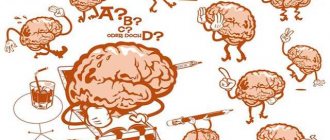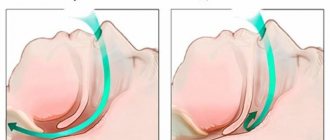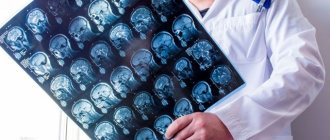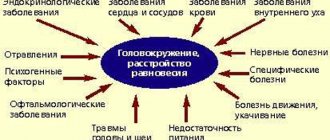TREATMENT FOR MEMORY LOSS IN THE ELDERLY IS AVAILABLE IN THE BRANCHES:
Treatment of memory loss in the elderly in the Primorsky region
Address: St. Petersburg , Primorsky district, st. Repisheva, 13
Treatment of memory loss in the elderly in the Petrograd region
Address: St. Petersburg , Petrogradsky district, st. Lenina, 5
Treatment of memory loss in the elderly in the Krasnogvardeysky district
Address: St. Petersburg , Krasnogvardeisky district, Novocherkassky pr., 33 building 3
Treatment of memory loss in the elderly in Vsevolozhsk
Address: Vsevolozhsk , Oktyabrsky Prospekt, 96 A
Senile memory loss: causes
Memory loss in older people largely depends on what factors triggered the disease. There are two groups of reasons: physiological and psychological.
Physiological causes of memory loss:
- head injuries;
- metabolic disorders;
- problems with blood circulation;
- chronic diseases that have a detrimental effect on the body in general and the cerebral cortex in particular for a long time;
- age-related brain pathologies;
- disorders (of varying severity) of the nervous system;
- various infectious diseases;
- regular lack of sleep;
- monotonous work associated with a sedentary lifestyle;
- suffered a stroke or heart attack.
Psychological reasons include:
- constant stress;
- melancholy;
- insufficient attention from relatives and friends;
- overstimulation of the body, which ultimately leads to fatigue and overwork.
Memory impairment: 9 main reasons
Memory impairment is a fairly common problem among people. It is worth saying that symptoms can occur in different age groups. However, memory deterioration with age, in people over 60, is more common.
It is important to understand the difference between ordinary forgetfulness, which is common to many and manifests itself rarely, with memory impairment, when a person is able to remember events that happened 2 years ago, but is unable to tell what happened yesterday.
Now let's look at the main causes of memory impairment, which are most often found in people with this disease.
Atherosclerosis of cerebral vessels
With age, the blood vessels of the brain begin to lose their elasticity, their general condition worsens, and their capacity is impaired.
As a result, blood circulation in the brain worsens. In addition to memory impairment, a number of other symptoms can be observed:
- Fatigue;
- Decreased attention;
- Constant irritability;
- Frequent headaches.
Head injuries
If memory and attention deterioration occurs at a young age, then this most often indicates a head injury. Many people don’t pay attention to this; a simple head injury is not a reason to see a doctor. However, this can lead to dire consequences in the future. Rarely, but possible, death.
Severe head trauma can cause:
- The appearance of hallucinations and false memories;
- Sudden memory loss;
- Frequent headaches and dizziness;
- Various stages of development of amnesia.
Diabetes
The vessels begin to suffer first. Small capillaries overlap, the walls of large vessels become thicker, which leads to deterioration of blood circulation in the brain.
Additionally, the disease can cause:
- Frequent urge to urinate;
- Constant dry mouth and feeling of thirst;
- Fatigue and fatigue;
- Incessant itching.
Osteochondrosis or hernia in the cervical spine
The most “popular” reason why memory and attention deteriorates is cervical osteochondrosis/hernia. Because near
In the intervertebral discs, cartilage tissue appears, caused by a change in geometry, it puts pressure on the vessels, which means that less nutrition with blood enters the brain cells.
Along with memory impairment, patients complain of:
- Difficulty turning the neck, periodic clicks and crackles are felt;
- Constant headaches;
- Numb hands.
If you feel these symptoms, then making an appointment with a neurologist can be a life-saving solution for you.
Mental disorders
This symptom can be found with the development of Korsakoff's syndrome or schizophrenia. If this violation exists, it is necessary to immediately seek help from a psychiatrist.
Mental disorders are also accompanied by the following symptoms:
- A person does not understand what is being said to him or what is being asked, and therefore he answers “inappropriately”;
- False memories arise;
- Obsessive ideas appear;
- Hallucinations occur;
- Orientation in space is lost.
Thyroid pathologies
When a person constantly forgets events that happen to him, the thyroid gland may be to blame for the occurrence of such a problem. If it is not able to generate the required amount of hormones, then a person may get several unpleasant symptoms at once:
- Muscle weakness;
- Constant apathy;
- High irritability over trifles;
- Fast weight gain;
- Memory impairment.
Often, weakness and memory impairment indicate numerous endocrine diseases. Failures in the reproductive system and adrenal glands can also lead to negative symptoms. In this case, a mandatory examination by an endocrinologist is necessary.
Stress, depression
If your nervous system is completely exhausted, then be prepared that your memory will begin to deteriorate. If attention is reduced and it becomes more and more difficult to remember events, then the reason is:
- Prolonged state of stress;
- Constant overwork;
- Frequent lack of sleep;
- Depression.
Treatment for memory impairment after stress is the simplest method in comparison with other types of diseases.
In fact, your body simply becomes overloaded and begins to slow down. It will be enough to give your body a little rest, start getting enough sleep and try to avoid stressful conditions.
Alzheimer's disease
It is worth immediately noting that in the initial stages of Alzheimer’s development, symptoms such as loss of attention, memory impairment are extremely rare. For this reason, it is necessary to calculate the manifestation of the disease as quickly as possible.
In the initial stages, the following signs of the development of Alzheimer's disease occur:
- Information received a few minutes ago is not stored in memory;
- Loss of orientation in the area, even when going to the store;
- Important events and dates are forgotten;
- Loss of ability to use everyday objects: microwave, telephone, stove.
Nowadays, doctors are not yet able to cure a person from Alzheimer's. However, if the disease is diagnosed in the early stages and therapy is started quickly, the progression of the disease can be slowed down.
Types of Memory Loss in the Elderly
Depending on which events have been erased from memory, the disease is divided into the following types:
- by time – long or short-term;
- in terms of speed – gradual, caused by the natural aging of the body, or sudden;
- selective - individual memories that are not connected by a single logic are forgotten;
- according to the degree of prevalence - partial or complete;
- visual – the ability to recognize faces is lost.
What is memory loss
Memory loss is a rather mysterious phenomenon. It is characterized by complete or partial loss of memories.
In medicine, a disease in which memory loss occurs is called amnesia. It can develop rapidly (in cases of alcoholic amnesia), or it can take quite a long time, plot by plot erasing various events from memory.
Partial memory loss involves the loss of not all memories. Events are stored in the form of fragments, with vague images, and disturbances in temporal and spatial perception.
Complete amnesia is the loss of absolutely all memories over a certain period of time. A gradually developing disease is most often temporary. If such a disease occurs, do not despair, since this peculiar memory disorder is treatable.
Memory treatment in old age: symptoms
Treatment of memory loss in older people should only be carried out after a complete diagnosis. It is customary to identify the following symptoms, the appearance of which indicates that the patient needs treatment for memory loss in old age:
- problems with speech - it may become incoherent, with long pauses between words or break off in the middle of a sentence;
- inattention in routine household activities: a kettle forgotten on the stove, a door not closed behind you, a tap left on, etc.;
- absent-mindedness;
- failure to fulfill promises or agreements - a person simply forgets about them;
- change in handwriting;
- fast fatiguability;
- loss of interest in previous hobbies;
- irritability and long periods of low mood.
Lose your past or just a moment of it
There are several types of memory loss:
- Regressive memory loss is a temporary phenomenon. The patient's memory is not restored immediately, but gradually facts from life return, although some of them may be lost forever.
- Progressive amnesia is characterized by gradual forgetting of facts. Initially, a person remembers a huge amount of information from the past, but over time, fact after fact, events are erased from the person’s memory. Typically, such erasure from memory is accompanied by the inability to retain new facts. The most stable information is the one that stays in memory for as long as possible - events from childhood and all the skills acquired through experience. Progressive amnesia is that the old brain structures that retain the earliest information about a person’s life are more resistant to erasing information. This is why older people often remember their youth rather than the coming years.
- Stationary memory loss is a persistent type in which facts from life are lost forever and cannot be restored by any means.
- Fixation amnesia does not allow facts that have just been received to be stored in memory. Such forgetfulness makes a person completely helpless and in need of constant supervision and care, since as a result of the development of the disease, he immediately forgets where he is, whether he turned on the gas under a lit match, etc.
- There are cases when a person, having lost part of the facts from life, begins to unconsciously replace them with invented stories, distorted facts, this is called pseudo-reminiscence .
Not in all cases should you panic about memory loss. For example, after the loss of a loved one or other psychological trauma, some data may be lost, but under the influence of hypnosis all the facts are returned.
Short-term memory loss and its causes
Short-term amnesia is a memory disorder in which a person can lose memory from several minutes to a day, and such a case can be either isolated in life or repeated up to several times a year.
The cause of this forgetting can be any pathology of the brain. With this type of amnesia, a person does not reproduce all the events that were present today or a year ago and does not record current events.
Article on the topic: Bisoprolol - instructions for use and release form, indications, composition and price
What is characteristic is that a person with this memory disorder clearly realizes that he has problems with memory. Such a person asks the same questions many times, trying in vain to understand what is happening. He is lost in space and time, but remembers exactly who he is and who his loved ones are.
The causes of this problem may be:
- depression;
- poor nutrition;
- stroke;
- mental trauma;
- atherosclerotic vasoconstriction;
- brain injury;
- taking medications;
- respiratory failure;
- hormonal stress;
- migraine;
- infections of the central nervous system and brain.
Memory treatment in the elderly: medications, psychotherapy and regimen
Treatment of partial memory loss in older people requires an integrated approach. Both psychotherapy and medications are used:
- improving blood circulation in the brain;
- preventing neuronal damage;
- influencing the process of memorization.
Treatment of short-term memory loss in older people is carried out with drugs that help normalize the metabolic process, improve memory, and activate cerebral circulation.
A similar situation arises when it is necessary to treat sudden memory loss in older people - the doctor can prescribe both the above drugs and other medications. However, for all types of disease, the following recommendations must be followed:
- communicate with the patient more often: talk, discuss, argue, solve crosswords, read, listen to the radio, but control the time you watch TV;
- control the patient's cholesterol level;
- change your diet in favor of foods containing antioxidants;
- maintain a sleep schedule;
- Introduce spending time in the fresh air into your daily routine.
Memory restoration is difficult, but possible
Memory restoration is a labor-intensive process, but it justifies all means. In order to return the facts of the past, you need not only medical help and understanding of relatives, but also constant work on yourself.
Drug treatment
If you notice memory problems, you should immediately seek qualified medical help.
In order to restore the patient’s memories, the doctor may prescribe the following memory restoration pills: Exelon, Semax, Reminil, Memantine, Gliatilin, Cerebrolysin. At the initial stages, Mexidol and Glycine work well.
Also, after determining the main cause that influenced the development of amnesia, drugs are prescribed that eliminate the cause of the disease.
In the case of alcoholics and drug addicts, you should first give up the bad habit, undergo rehabilitation, and then work on memory restoration.
Physiotherapy
Physiotherapy should also be included in drug treatment (especially if the causes of memory loss are physiological injuries): electrophoresis, administration of glutamic acid, development and implementation of special physical activity programs that allow you to restore blood circulation, develop important muscle groups, etc.
Memory training
In the case of amnesia, you should not rely entirely on medicine and physical education. In such cases, special memory training is important. It's worth starting with poems and songs - this is a wonderful way to develop memorization.
It is necessary to try to remember poems from childhood and youth. Next, learn those songs and poems that you liked but had not studied. And only then proceed to new unfamiliar material.
Diet correction
You need to watch your diet: you must include carrots with raisins and sour cream, chocolate, walnuts, and grated horseradish. Also don’t forget about seaweed, cottage cheese, cheese, baked potatoes and apples, seeds and bananas.
Traditional methods
In spring, take 7 young pine buds per day. It is also useful to take a decoction of rowan bark. To do this, pour a large spoonful of raw material into a glass of water and boil for 10 minutes. You need to leave for 5 hours, after which you take 1 large spoon 3 times a day.
Medical
Treatment of memory loss in the elderly in St. Petersburg often requires a multidisciplinary approach and the involvement of doctors from different specialties. The medical department brings together all the highly specialized specialists who are necessary for a correct diagnosis. You don’t have to take your loved one all over the city to get the necessary examinations.
In addition, our clinic is one of the few in the city that has the right to prescribe a full list of psychotropic medications. In addition, we use advanced therapeutic techniques, which, in combination with properly selected medications, ensure positive recovery dynamics.
Our centers are open in three districts of St. Petersburg, so you can get to us without any problems. And recently, we have been practicing the treatment of memory loss in the elderly in Vsevolozhsk.
What is “Memory”?
Memory is a complex structured mechanism that allows people to perceive the information around us, process the received data and store it.
Each of us has this function from birth and has the opportunity to train and develop it.
Unfortunately, the opposite effect is also possible under the influence of various factors that can negatively affect attention and memory.
Attention is a directed emphasis on an action or event. This process is a similar cognitive phenomenon as memory.
What happens inside the brain
According to biologists, memory is the result of the functioning of a web of neural connections in which central nervous system reactions occur. A person perceives and perceives the objects around him through receptors: hearing, vision, smell, touch, taste. All information is transformed into electronic impulses that are sent to our brain. This is the final point where all collected information is stored.
We are able to remember even the smallest nuances or insignificant events if they are supported by one of the receptors. Memory is also unique in that a person is able to add various details to memories: “experienced” emotions, conclusions, and so on. In essence, we do not remember the actual event, but a slightly modified personal impression.
Where is the information stored?
Currently, scientists do not have answers to the specific question “Where and how is information stored in the human brain?” Many theories and assumptions have been put forward, but none of them have been confirmed.
In scientific circles, there is an opinion that the information received is stored in neural circuits.
Cost of treatment for postpartum depression:
| Services list | Price in rubles | |
| Saint Petersburg | Vsevolozhsk | |
| Consultation with a psychologist | from 2500 | from 2500 |
| Psychiatrist consultation | from 3500 | from 3000 |
| Consultation with a psychotherapist | from 3500 | from 4000 |
| Consultation with a sexologist | 4500 | 4500 |
| Consultation with a narcologist | from 3000 | from 3500 |
| Family psychotherapy session | from 3500 | from 3500 |
| Group psychotherapy session | 1800 | — |
| Psychotherapeutic consultation | 11000 | 11000 |
| Full psychodiagnostic examination (2 hours) | 6000-7000 | 6000-7000 |
| Wechsler test | 5000 | — |
| Psychiatrist's report for reference | 1000 | 1000 |
| Psychiatric examination before the transaction | 7000 | 7000 |
| PSYCHIATRIC HOSPITAL | ||
| Standard (4-seater) | — | 5500 |
| Standard+ (2-seater) | — | 7000 |
| Junior Suite (2-bed) | — | 7800 |
| Luxury (2-bed) | — | 8500 |
| Premium (1-seater) | — | 10000 |
The prices indicated on the website are not a public offer. Check the cost with the administrators.











